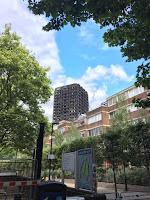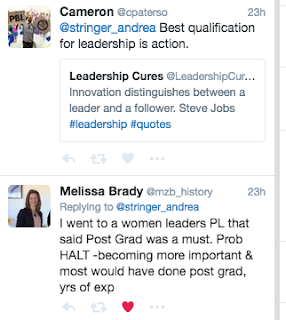If we want to create a coaching culture where we build the
capacity of our colleagues, we need to approach classroom observations with no
judgment. Peer observations have been used in education for many years but
it can push some educators out of their comfort zone. Therefore, it
is imperative to have a partnership approach based on trust and
respect. Classroom observations can also be onerous, costly and time consuming.
This blogpost will provide some suggestions and options when conducting
classroom observations. It is important to identify that these classroom
observations are not implemented for performance management but with the
intention of teacher professional growth.
When I began my teaching career in California, I asked my daughter to record my lessons, my students and my classroom. Our children did not attend my school, so when our school holidays varied, it was an opportunity for my children to help out in my classroom. My Grade One students enjoyed having older children in the classroom and it was great for them to meet my children.
When I began my teaching career in California, I asked my daughter to record my lessons, my students and my classroom. Our children did not attend my school, so when our school holidays varied, it was an opportunity for my children to help out in my classroom. My Grade One students enjoyed having older children in the classroom and it was great for them to meet my children.
 |
| Flip Camera used in 2007. |
Back then, we used a Flip Camera, as it was simple and
affordable. On one occasion, my daughter recorded an English lesson that consisted
of me reading a mentor text to
my students. While reading, I implemented ‘think aloud’ to
demonstrate various comprehension strategies. The purpose of recording the
lesson was for me to look at myself from the student’s perspective and take
ownership of my dialogue and actions. From the review of my recording, I
noticed it was more of a monologue, than a dialogue.
As an early career teacher I acknowledged I had a lot to
learn. Knowing this was liberating, as I had nothing to lose and everything to
gain from learning from others. It is accepted that new teachers should absorb
all they can from observations, other educators and resources. With the goal of
improving, I originally made the videos for personal use. After viewing myself
on numerous recordings, I believe I was more comfortable being observed by my
supervisor. This was a requirement of Beginning
Teacher Support and Assessment when seeking accreditation in
California.
'The greatest effects on student learning occur when the
teachers become learners of their own teaching’ (Hattie, 2009, p.12).
A great way to become familiar with using video for
reflection, is to record yourself. If you don’t have access to various
independent recording devices, ask a colleague or student to record a
section of your lesson. Asking others to record or observe a one hour lesson is
quite onerous, but recording small components makes observing less demanding. I
have found recording segments of lessons aligns very well with incremental coaching.
As a professional learning coach, I really value the use of
recording teaching lessons. It provides me with the opportunity to sit
alongside the teacher to observe their lesson. Recording a lesson has many
benefits-
* Provides the coachee with the option to
approve the viewing of the lesson prior.
* Provides the coachee ownership
* Provides a point of reference for a collaborative discussion
* Allows one to pause the recording to discuss various aspects of the lessons
* Provides a more objective approach to the observation
* Can easily rewind if anything is missed or needs reviewing
*A snapshot of one’s teaching to determine growth and improvement
* Students see the teacher as a learner
* Provides the coachee ownership
* Provides a point of reference for a collaborative discussion
* Allows one to pause the recording to discuss various aspects of the lessons
* Provides a more objective approach to the observation
* Can easily rewind if anything is missed or needs reviewing
*A snapshot of one’s teaching to determine growth and improvement
* Students see the teacher as a learner
I have recorded teachers’ lessons using an iPad and I have also
used Swivl. A coaching session
may happen before or after the coachee’s lesson is recorded. This decision is
determined by the coachee and their goal. Using our school observation
proforma, a coachee can determine an area of focus before the observation. At
times, it has been sufficient and effective to record only a 10-minute segment.
Watching the video together, using the observation proforma creates rich
discussion and opportunities for further coaching conversations.
Coaching
generally is defined as a process where the coach facilitates
self-directed learning to enhance teacher development, by questioning, active
listening and creating a supportive environment (van Nieuwerburgh, 2012).
Being observed can be viewed by some as a ‘tick the box’
process. However, if provided with the opportunity to own the process,
observations can generate rich conversations between a coach and a coachee. If
a teacher records their own lessons consistently and at incremental periods,
self-reflection and self-awareness is likely to increase. Utilised prior or
after an observation coaching is not about telling teachers they need to
improve or how to improve. A coach, through questioning, actively listening and
challenging the coachee in a supportive and encouraging environment,
facilitates self directed learning of the teacher (van Nieuwerburgh, 2012).
Coaching allows teachers to take responsibility for their choices and provides
teachers with agency or autonomy in their educational context.
References
Hattie, J. (2009). Visible learning. London:
Routledge.
van Nieuwerburgh, C. (2012). An Introduction to
Coaching Skills: A Practical Guide. London: Sage.

















